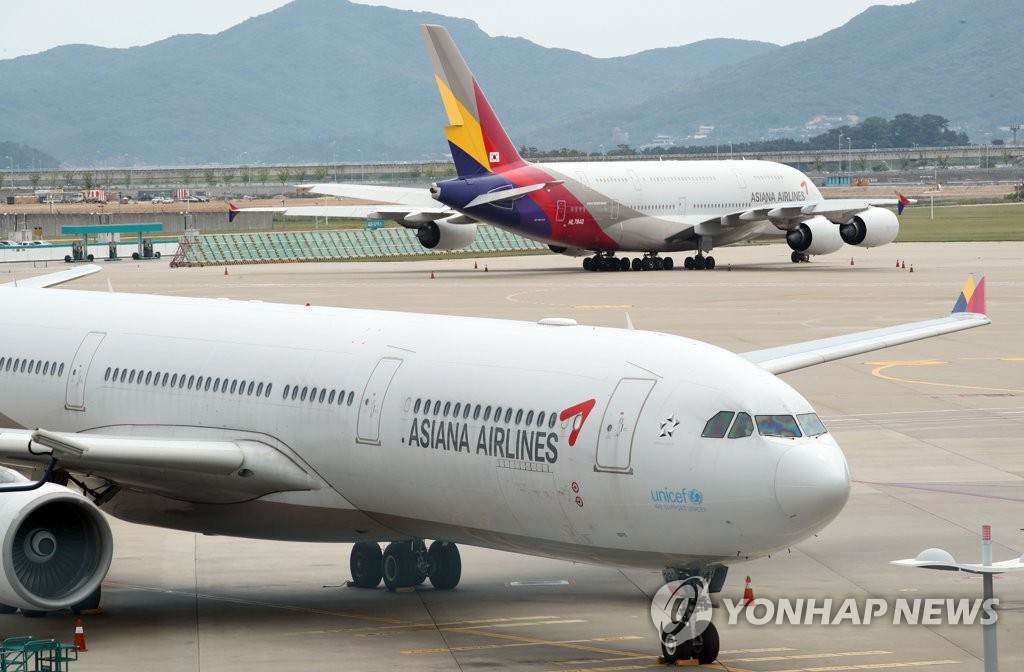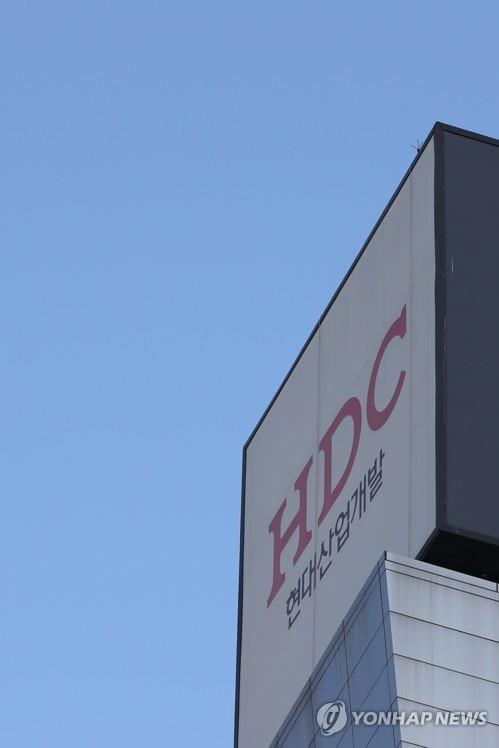- California Assembly OKs highest minimum wage in nation
- S. Korea unveils first graphic cigarette warnings
- US joins with South Korea, Japan in bid to deter North Korea
- LPGA golfer Chun In-gee finally back in action
- S. Korea won’t be top seed in final World Cup qualification round
- US men’s soccer misses 2nd straight Olympics
- US back on track in qualifying with 4-0 win over Guatemala
- High-intensity workout injuries spawn cottage industry
- CDC expands range of Zika mosquitoes into parts of Northeast
- Who knew? ‘The Walking Dead’ is helping families connect
Creditors say ready to negotiate terms of Asiana sale
Creditors of Asiana Airlines Inc. said Wednesday they are ready to meet with HDC Hyundai Development Co. to renegotiate terms of the airline’s takeover by the property developer.
On Tuesday, HDC called for a renegotiation with Asiana’s creditor banks — the state-run Korea Development Bank (KDB) and the Export-Import Bank of Korea (Eximbank) — over its planned takeover of the country’s second-biggest carrier, citing the current coronavirus crisis as “never expected and a very negative factor,” which will largely affect the acquisition plan.


This photo, taken June 10, 2020, shows Asiana Airlines’ planes at Incheon International Airport in Incheon, west of Seoul. (Yonhap)
“HDC needs to propose what acquisition terms it wants to be changed first before related parties begin talks over the acquisition deal. HDC needs to come to the negotiating table instead of sending a letter (to creditors) or releasing a press statement,” the KDB said in a statement.
The related parties include creditors, Asiana Airlines, HDC and Kumho Asiana Group.
In December, HDC formed a consortium with major financial group Mirae Asset Daewoo to sign a deal to acquire a 30.77 percent stake in Asiana from Kumho Industrial Co., as well as new shares to be issued and Asiana’s six affiliates, for 2.5 trillion won (US$2.2 billion).
Back then, the HDC-led consortium and Kumho Industrial agreed to close the deal by June 27, and the acquisition may be delayed until Dec. 27, depending on foreign regulators’ reviews of the takeover.
As creditors and related parties are expected to renegotiate the terms, the closing of the deal looks set to be delayed until the end of this year.
On Wednesday, Asiana Airlines fell 2.8 percent to 12,000 won, and HDC shed 2 percent to 22,050 won, underperforming the broader KOSPI’s 0.3 percent loss.
The deal initially appeared to go on as planned, but it has been in peril since the pandemic.
Airlines, hit hard by the COVID-19 pandemic, have suspended most of their flights on international routes since March and posted hefty losses in the first quarter.
HDC also picked Asiana’s snowballing debts as another reason for the renegotiation that is “damaging the acquisition value of the carrier.”
Asiana’s debts have increased by 4.5 trillion won since July last year and its debt-to-equity ratio skyrocketed by 16,126 percent on a parent basis at the end of March from end-July, it said.
HDC’s calls for the renegotiation come after Asiana’s creditors sent an ultimatum Friday to the HDC to notify it of its intent to complete the acquisition by June 27.
Asiana’s net losses for the January-March quarter deepened to 683.26 billion won from 89.18 billion won a year earlier.
HDC had reiterated its plan to acquire Asiana, dismissing speculation that it may have difficulties in taking over the company due to the economic fallout from the coronavirus outbreak.
Regulators in the United States, China, Kazakhstan, Uzbekistan, Turkey and South Korea approved HDC’s planned takeover of Asiana. Russia is the only remaining country that is still reviewing the integration.
To help Asiana stay afloat, the KDB and Eximbank plan to inject a combined 1.7 trillion won into Asiana. Last year, the two policy lenders extended a total of 1.6 trillion won to the cash-strapped carrier.
In its latest self-help plans, Asiana has had all of its 10,500 employees take unpaid leave for 15 days a month since April until business circumstances normalize. Asiana’s executives have also agreed to forgo 60 percent of their wages, though no specific time frame was given for how long the pay cuts will remain in effect.











